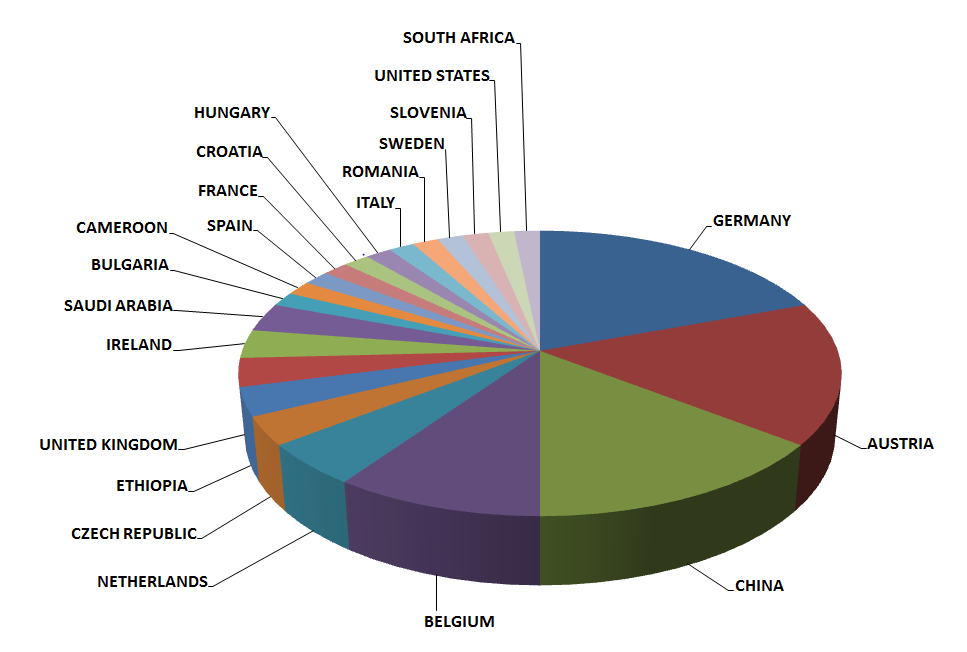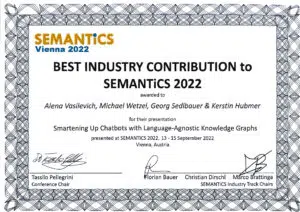
Summer time brings summer schools! Just last week in Bologna, the 12th Semantic Web Summer School took place, while in Santiago de Compostela there was a course on Keyword Search in Linked Data. Of course, like every year, there have also been interesting courses in the domain of Multilingual Knowledge. We once again contributed to the Terminology Summer School.
This five-day event is a round-trip through best practices, business and legal views, standards, and other peripheral aspects of terminology work. This year it was organised by TermNet and took place in Vienna from 11-15 July. I’d like to share a couple of personal highlights from the five days.
An International Terminology Summer School!
The first highlight for me was the clearly international atmosphere! Participants from many different organisations, smaller and larger companies, as well as universities from all across the globe made it a diverse and wide-ranging event.

Fundamental!
Why and how? – the first two days focused on the very basic fundamentals of terminology management — termbase configurations. Klaus-Dirk Schmitz from TH Cologne outlined basics such as the terminological triangle (concept – object – term), introduced some key terms of terminology modeling (synonymy, homonymy, polysemy), as well as concept systems and concept relations. I’ve picked up on this and elaborated it in our presentation on Multilingual Knowledge Systems.
In his 2nd session Klaus went a bit more into the details, namely into the world of data categories and how to flexibly and accurately describe and classify concepts or terms.
In his 3rd session he then focused on the challenges of and approaches to exchanging and harmonizing terminology resources. Klaus also emphasized that the exchanging of terminologies is not only a syntactical question – pretty addressed through the exchange standard TBX – but also a semantical challenge, namely when it comes to mapping the meaning and occurrence of different data categories!
Valuable!
A further set of interesting lessons hovered around the business value of terminology. Beate Früh from büro b3 as well as Frieda Steurs from the KU Leuven touched on the monetary aspects.
Beate (“How to present the business case”) outlined the necessary steps and tools to make a business case for terminology and how to find the budget for it: Problem analysis, evaluation of risks without managed terminology is followed by a detailed plan including a SWOT analysis as well as covering strategic and operative aspects. She further outlined means to get commitment from top level management. Her presentation ended with the recommendation to not forget about the power of examples – to make the value of terminology very tangible.
Frieda (“Economic aspects … “) looked into the return on investment of terminology workflows. She emphasized the challenge of the vast amount of information created every day. For instance, the 2013 IKEA catalog, the main marketing tool of the company, has ~ 300 pages covering ~12.000 products, it is created in 62 different versions for 42 countries in 30 languages. We live in a knowledge driven society, but we suffer information overload. “Knowledge is wealth, the intrinsic asset of companies, knowledge is represented by language!” However, while terminology is the carrier of knowledge it is often only considered as a cost factor instead of seeing it as a tool to boost quality and efficiency. To argue, Frieda provided the participants with a fireworks of arguments for terminology: efficiency when entering foreign markets, avoidance of communication errors, liability claims, product failures, even human injuries, or marketing issues. She also provided the participants with formulas and guidelines to calculate the ROI of terminology work
Practical!
Besides all the rather theoretic “how-to” lessons, we’ve seen many presentations from the participants themselves: during these late afternoon sessions participants shared highly versatile insights into how and why their organisations and companies manage terminology.
I am looking forward to the next terminology summer school which will take place in Cologne in July 2017, and then again in Vienna in 2018…
In case you are wondering about other summer school opportunities – you will certainly find other inspiring ones at www.summerschoolsineurope.eu!
And, of course, TermNet, the organizer, shared some pictures from the event!
*Feature Image: Background photo created by lifeforstock – www.freepik.com



